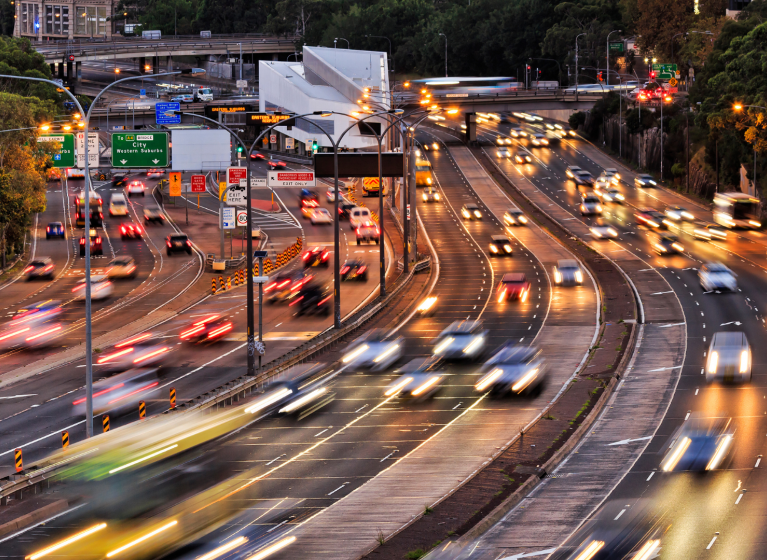We spoke to MHC Mobility’s European MDs Eric van Vliet, Ryjan Rutgers and Gert Veenstra about how the changes to consumer behaviour are impacting mobility across Europe. Here are their key outtakes.
In a year when most Europeans were locked down inside their homes due to COVID-19, the world changed drastically, and for a time was unrecognisable. Workers started new jobs from their living rooms, never stepping foot in the office. Families celebrated birthdays and watched weddings on Zoom.
Despite these extreme shifts in how we live and work, just eighteen months since the start of the pandemic industries are already seeing a return to the way things were in pre-pandemic times. With lockdowns lifting, we are experiencing an unexpected recovery. While miles driven in the Netherlands plummeted at the height of the pandemic to around ten per cent of usual mileage, today, miles driven have returned to ‘normal’ levels. A rebound to normal levels of fuel consumption has been observed across the board.
“We’re recovering very fast. It’s not what I expected; I was expecting to see much more of a change. In the Netherlands, we are seeing traffic jams, an increase in fuel consumption, and we’re back up to mileage of around 95 per cent”, said Gert Veenstra, MD of MHC Mobility Netherlands.
How is this possible? “Many people have returned to working in offices, like they were before” said Eric van Vliet, MD of MHC Mobility Central and Eastern Europe. “We’re back to taking flights again. In some ways, it feels like the pandemic is now a historical event.” he adds.
While many aspects of mobility – some positive, like the ability to travel, and some less positive, like the amount of traffic on the roads – are quickly catching up to pre-pandemic levels, the industry is not entirely insulated from permanent changes to consumer behaviour caused by the pandemic. Mobility, like all sectors, must evolve to meet the demands of a new world.
Out with the new, in with the old: drivers want used cars. And electrification.
Ryjan Rutgers, MD of MHC Mobility Germany, has seen a huge increase in demand for used cars: “In a normal year in Germany, around 3.5 million new cars are sold – last year, this figure reduced to 2.8 million, with less new cars being delivered overall” he tells us. Used cars are not only in high demand, but also cost more than they used to, with reports suggesting this will be a trend that continues.
This trend is evident in the Netherlands, too. In a country where high tax rates on new cars have in recent years led more drivers to consider used cars, a shortage of new cars caused by the pandemic has increased demand even further.
Alongside demand for used cars, MHC Mobility has seen a steady rise in demand for electric vehicles (EVs). Unlike the grab for used cars, Gert doesn’t see EV demand as a pandemic-fuelled change. He believes that Government regulations – for example, the EU’s plan to sell 100% emission-free cars by 2035 – are the true catalysts of these changes. Whatever the cause, this demand isn’t going away any time soon.
Online shopping isn’t stopping.
While we were already well acquainted with online shopping before the pandemic, it’s no surprise that shopping online became more popular across Europe and globally when doors to brick-and-mortar retailers shut and consumers self-isolated at home. The need for vehicles to transport online purchases did not subside with the reopening of storefronts. Ryjan says the demand for RVs, commercial vehicles and vans is “booming” and continuing to increase across Central Europe, the Netherlands and Germany. This increase in demand is particularly evident in the retail sector, with many experts predicting these changes are around to stay for the foreseeable future..
People want flexibility in all aspects of life – not just their remote work set-up.
The unpredictability of the pandemic made long-term planning near impossible for over a year. Even with the end of the pandemic in sight for many, a feeling of uncertainty prevails, with people constantly questioning what will happen in a few months’ time. Offering flexibility is now essential to doing business, Eric said.
In Germany, businesses are eager to find short, six-month leases for commercial fleets, rather than the traditional 36-month commitment. To manage this increase in demand for flexibility, Ryjan’s team is developing digital fleet management tools that offer customers a wider range of solutions that they can regularly look to for their demands. “While a customer-first focus has always been central to our offering, marrying this up with a digital solution has been central to our success during the pandemic, with in-person meetings being almost impossible and everyone wanting everything online”, he said.
In the Netherlands, MHC Mobility has responded to the changing nature of consumer behaviour, by developing a solution for home office working. Customers can now lease a small office unit for their garden or backyard, along with a leased car, to facilitate a hybrid working lifestyle and help accommodate changing transport needs.
Together, we can change for the better, faster than before.
The pandemic has shown that collectively, we are able to evolve and make huge shifts in behaviour, lifestyle, and business much quicker than we once thought. Reflecting on learnings from COVID-19, Gert said, “Half a year ago, if you had asked me what impact the pandemic will have, it would have surprised me to learn that the biggest impact of the pandemic was a greater ability to adapt to changing circumstances.”
As we look to challenges further ahead, such as the road to net zero, we should have greater confidence in our ability to change our behaviour and ways of working and embrace opportunities to improve.



